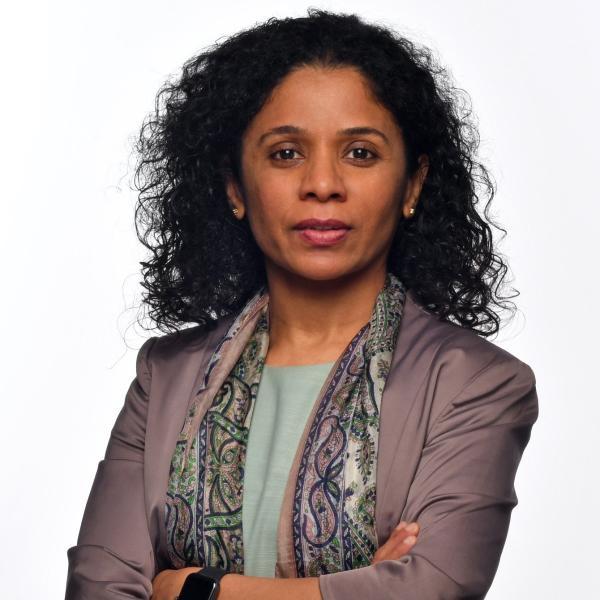
Sahana Udupa is Professor of Media Anthropology at the Ludwig-Maximilians-Universität München (LMU Munich), Germany, where she researches and teaches online extreme speech, ethical artificial intelligence, digital politics, news and journalism, and media policy. In 2016, she received the prestigious European Research Council (ERC) starting grant award for a five-year study on digital politics. In 2020, she received the ERC proof of concept grant for developing an Artificial Intelligence (AI) assisted process model to tackle online extreme speech.
Sahana founded the Centre for Digital Dignity, an international network of researchers and civil society groups, to promote the value of dignity in online discussions and foster enabling spaces of political expression. She is the author of the widely reviewed book, “Making News in Global India: Media, Publics, Politics,” published by Cambridge University Press, UK, in 2015. Her most recent publications include a commissioned research paper on digital technology and extreme speech for the United Nations Peacekeeping Digital Technology Strategy.
Previously, Sahana was Research Fellow and currently a Senior Research Partner at the Max Planck Institute for the Study of Religious and Ethnic Diversity, Germany. Prior to joining LMU, Sahana was Associate Professor of Journalism and Media Studies at the School of Public Policy, Central European University. She serves on the advisory board of MediaWell, the Social Science Research Council initiative against digital disinformation.
Across ongoing research projects, Sahana’s work has traced the transforming media and urban landscapes of late capitalism. Conceptually, her work raises the question of “mediation” as a media technological, performative, and experiential space to articulate political practice. Keen to create conversational spaces between research and communities, her projects have sought to translate research findings into possibilities in the “real world,” inviting policy makers, critical scholars and students to join hands in a collaborative effort to address the “dark side” of digital communication.